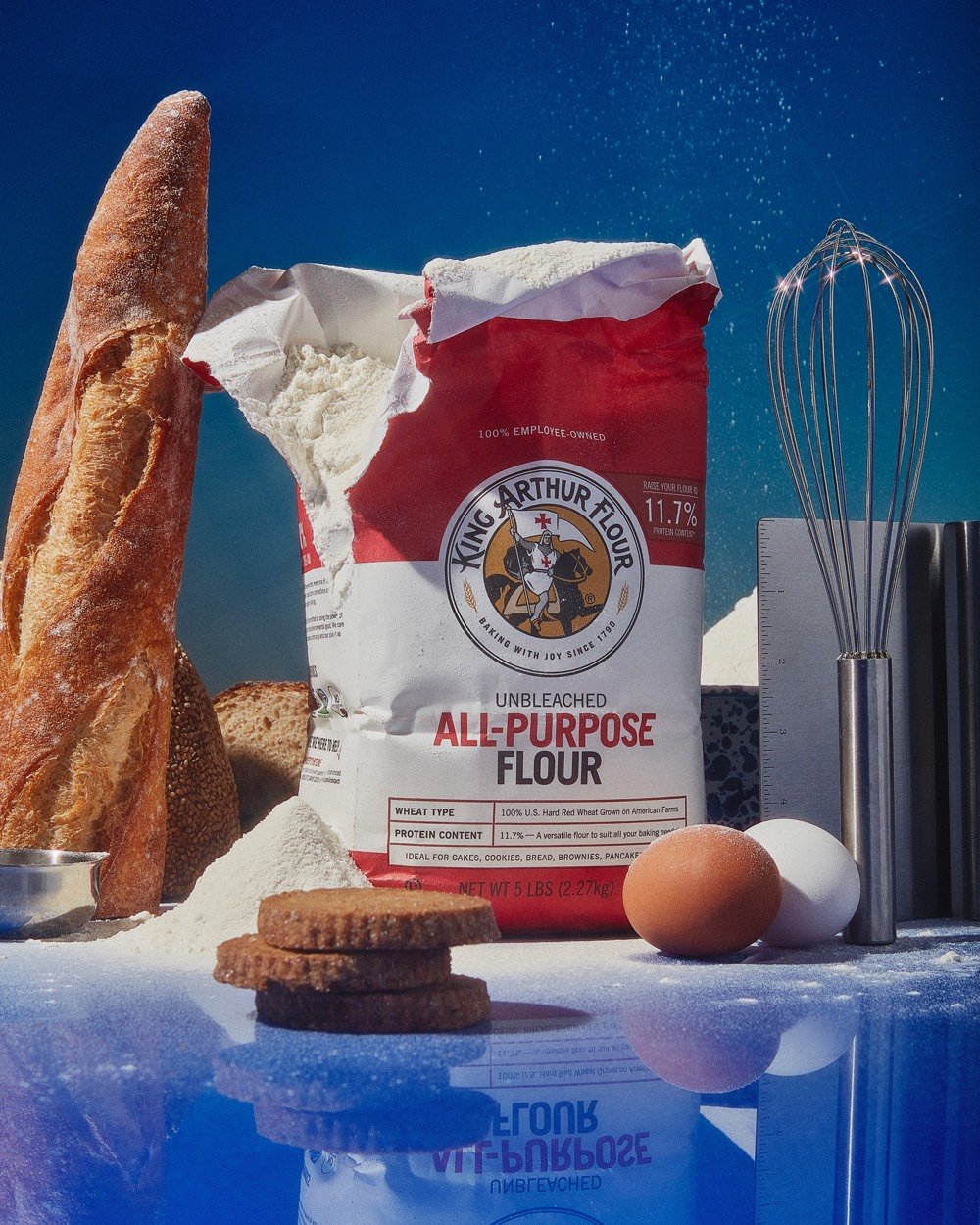Inside the Epicenter of the Pandemic Baking Boom at King Arthur Flour

Marker’s David Freedman has a great look at how Vermont’s own King Arthur Flour has dealt with a massive increase in demand for their best-in-class flour and other challenges during the pandemic. The piece is a textbook example of what Tim Carmody calls the systemic sublime.
The company knew something weird was going on when they noticed a 600% sales jump almost overnight and started seeing different kinds of questions coming into their consumer call center.
So tricky and specific are some of the bread-baking questions that even though Ely is one of the bread specialists working the hotline, she sometimes puts callers on hold and yells over the cubicle walls to colleagues for second opinions.
But in early March, Ely noticed a change in the questions. Partly it was an increase in the sheer number of calls, a jump that seemed more sudden and pronounced than the normal mild pre-Easter build-up. But even stranger was how many of the callers seemed, well, clueless. How do you tell if bread is done? Do I really need yeast? And strangest of all: What can I use instead of flour?
In a matter of weeks, the employee-owned company transformed several aspects of their business and tripled their flour output in order to keep up with the demand.
As a first step to ramping up the flow of flour to consumers, King Arthur added one to two shifts at all its facilities and contracted with an additional fulfillment center. It shifted most of its long-distance product transportation from rail to trucks, which are more expensive per bag but add speed and flexibility. It stopped international sales to divert all incoming inventory to U.S. customers. To make shipping operations more efficient and get orders out the door faster, the company switched to all “ship-complete” shipping — that is, if one item in a multi-item order was temporarily out of stock, the entire order was held until the item was back in stock.
The company also managed to find a new partner that could mill and bag more flour. The wrinkle was that the partner was only set up to fill three-pound plastic bags, not King Arthur’s five- and 10-pound paper bags. So King Arthur quickly whipped up a new three-pound plastic bag and threw it up on the website as a new product. That move alone would add up to a half-million new units a month to the company’s shipments.
The company has also done right by their employee-owners:
Altogether, three-quarters of the company’s employees were sent home. In many cases, the work went with them, as was the case with the Baker’s Hotline, and with most managers. Many of those whose jobs couldn’t be performed at home were trained to help out with tasks that could. So far, not a single employee has been furloughed; everyone is being paid — including 12 employees who stay busy sewing masks for other employees.
They’ve helped out companies they supply as well:
While home baking was taking off, bakeries were being closed down, sharply reducing demand for the big bags of flour. (To help keep some of them afloat, the company has spent $30,000 so far during the pandemic paying some of its bakery customers around the country — including Empire Baking — to bake bread and donate it to local good causes. Its own bakers have been doing the same for essential workers and those in need in Norwich.)
And I love the photos that accompany the article by Stephanie Gonot — that must have been a fun & messy photoshoot to do at home. (via @robinsloan)





Stay Connected